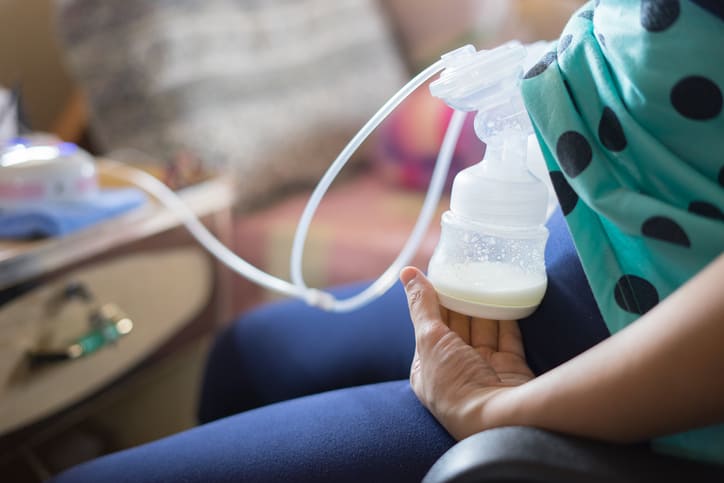The first question parents ask when a Baby is born is, “Is everything okay?” Most times, doctors can say “yes” and everyone can celebrate. However, for parents whose baby arrives premature, more than 4 weeks before their due date, there are a lot of unknowns.
A premature baby means a stay in the NICU to ensure that Baby receives specialized and 24/7 intense medical attention and services while underdeveloped systems become stronger and healthier before they go home. Unfortunately, this also means that breastfeeding may not be possible. When this happens, Alzein Pediatrics and Ms. Kim Reule are here to help.
Ms. Reule, a certified Family Nurse Practitioner and Certified Lactation Counselor point out that research shows that breast milk provides countless benefits for newborns, such as baby’s first antibodies to boost the immune system, and the perfect amount of fats, carbohydrates, and vitamins to support brain development. Amazingly, the milk Mom produces when a Baby is premature is slightly different from the milk mothers produce for full-term babies to meet their specific needs.
Most preemies’ mouth, throat, and cheeks muscles are not adequately developed to nurse directly from their mother. There are also special cases when Baby may not be able to consume breastmilk due to the underdevelopment of their digestive system. In these cases, mothers must begin pumping breastmilk and either hand it off to the NICU staff to feed the baby through a tube or syringe or freeze the milk to use when the Baby can consume breastmilk.
How to Begin Preemie Pumping?
If you deliver a Baby prematurely, establish a pumping schedule as soon as you can after giving birth. Expressing colostrum and eventually mature milk at regular intervals will help establish your milk supply.
You can express milk either by an electric or manual pump or through hand expression. All three options involve a learning curve for new mothers, and Ms. Reule is here to help with determining flange sizes and techniques to get the most milk out of each pumping session.
Many NICU mothers have reported being able to maximize milk production by using these techniques:
- Electric pumps, utilizing double pumping (pumping milk from both breasts at the same time)
- Pumping next to their baby’s bassinets in the NICU
- Pumping directly after having skin-to-skin time with their baby
- Breast massage before or during pumping to improve milk flow
- Stay hydrated and eat a nutritious diet. Your body can’t produce milk for the Baby if it is low on resources for yourself.
Preemies and Frequency Pumping
The first three days of your baby’s life are the most important time to establish your milk supply. At this stage, mothers are producing colostrum in small amounts at a time. Some women find that hand expression, which involves a hand massage of the breast to produce milk into a container, is the best way to get this initial nutrition out for the Baby.
A study found that “women who expressed colostrum using hand expression at least six times daily during their infants’ first three days of life had the most milk later on. By the end of the study, these women were producing 45 percent more milk than women who used hand expression fewer than twice a day during the first three postpartum days. Both groups used the electric pump with the same frequency.” If possible, use hand expression during the Baby’s first three days of life, as often as you can.
For the first month of Baby’s life, pump six to eight times a day at regular intervals around the clock (or at least 100 minutes in 24 hours). Waking up every four hours to pump in the middle of the night is not easy, but it is well worth it to establish a milk supply and get used to night feedings.
Troubleshooting Transition from Bottle to Human Breast
It is common for babies who are unable to breastfeed at first to have “nipple confusion” or “nipple preference” when offered the breast – drinking from a bottle provides more milk with less effort. Ms. Reule offers several suggestions to entice your baby to latch to your breast when medically approved:
- Perform skin-to-skin contact on your breast, allowing Baby to nuzzle or suckle as desired.
- Consider the use of a device, such as a nursing supplementer, to deliver expressed milk to your baby through a tube that is taped next to your nipple.
- Give you and your baby time.
Some babies have no preference and transition from bottle to breast with no issues at all. Some babies have a strong preference to stick with what they started with.
With preparation and patience, pumping for your preemie will soon transition to comfortably breastfeeding Baby. If it doesn’t, Ms. Reule and all of us at Alzein Pediatrics are here to offer support, advice, guidance, and compassion.
For an appointment at our urgent care call or message us through your patient portal. We are always here to help!


